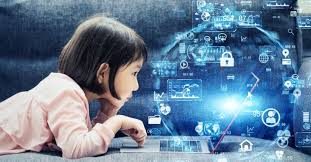Personalized Learning: AI's Role in Education and Tailored Learning Experiences
Table of Contents
Personalized Learning: AI’s role in education and tailored learning experiences.
Personalized Learning: AI's Role in Education and Tailored Learning Experiences
Personalized Learning: AI’s role in education and tailored learning experiences.
Table of Contents
- Personalized Learning
- AI’s Role in Education
- Tailored Learning Experiences
Personalized Learning
Personalized learning is an approach to education that focuses on meeting the individual needs of each student. This means that students learn at their own pace, in their own way, and with the support they need to succeed. Personalized learning is not a one-size-fits-all approach, but rather a customized learning experience for each student. The goal of personalized learning is to help students become more engaged in their learning, develop a deeper understanding of the material, and achieve better results.
AI’s Role in Education
Artificial intelligence (AI) is playing an increasingly important role in education. AI can be used to personalize learning experiences, provide students with individualized feedback, and automate tasks that teachers traditionally perform. AI can also be used to create adaptive learning platforms that adjust the difficulty of the material based on a student's performance.
Tailored Learning Experiences
AI can be used to create tailored learning experiences by analyzing a student's performance on various assessments and providing personalized feedback. For example, AI can be used to identify areas where a student is struggling and provide them with additional support or resources. AI can also be used to recommend learning activities that are best suited to a student's learning style. AI can be used to provide students with individualized feedback. For example, AI can be used to grade essays, provide feedback on writing assignments, and provide feedback on student presentations. This allows teachers to focus on providing more individualized support to students who need it most. AI can also be used to automate tasks that teachers traditionally perform. For example, AI can be used to grade multiple-choice tests, track student progress, and send out reminders to students. This frees up teachers to focus on other tasks, such as providing individualized instruction and supporting student learning.
In conclusion, AI is transforming the education landscape by offering personalized learning experiences that cater to individual student needs. Through adaptive learning platforms, tailored feedback, and automated tasks, AI empowers educators to create a more dynamic and effective learning environment for all students. It's clear that AI plays a crucial role in the future of education, paving the way for a more customized and engaging learning journey for every student.
Summary
- Personalized learning focuses on individual student needs, allowing them to learn at their own pace and with tailored support.
- AI empowers personalized learning by analyzing student performance, providing individualized feedback, and automating tasks.
- AI can create tailored learning experiences through adaptive learning platforms that adjust difficulty levels and recommend suitable learning activities.
- AI helps educators provide personalized support to students, freeing up their time for more impactful tasks.
- AI is transforming education, making learning more engaging and effective for all students.
